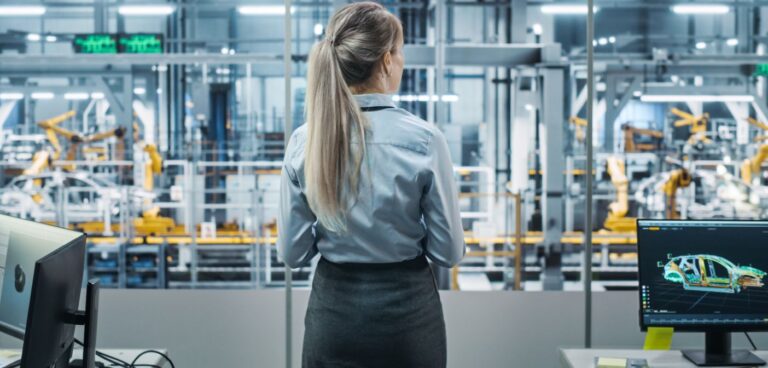UK Research and Innovation (UKRI), an arms length public body that delivers funding to scientific and technology-driven schemes, has announced that £14m in funding has been awarded to projects using digital technology to drive energy efficiency and reduced material consumption in the manufacturing sector.
The funding has been offered under the Sustainable Smart Factory competition, a collaborative research competition established to encourage solutions to improving the sustainability of manufacturing processes.
Those eligible for the funding needed to demonstrate a project which utilised data or digital technology to reduce, reuse or separate waste materials or reduce energy consumption.
Some 12 projects were successful in their bid for the shared funding, offering solutions across the food, aerospace, automotive, plastics, electronics and engineering sectors, and represent entrants from a combined total of 55 organisations.
Some of these organisations included both small and medium sized enterprises (SMEs), large manufacturers, technology developers, universities and research and technology organisations.
Jackie Doyle-Price, industry minister, said: “Creating and adopting the latest in digital technology solutions will be key to the continued success of our manufacturing sector.
“It is now critical that companies in industries as varied as baking to advanced robotics are maximising their potential using technology such as AI and virtual reality.
“The projects awarded funding today will cut energy consumption and boost growth for businesses in regions right across the UK, while helping our world leading manufacturers keep pace with ever growing global competition.”
It is estimated the projects could create 1,000 jobs in the three years after their completion and cut manufacturing carbon dioxide emissions by 300,000 tonnes a year.
The winners include:
- Photocentric’s solution for 3D-printed parts that can be created autonomously, to challenge existing injection moulding techniques from overseas
- Deep.Meta project, which uses artificial intelligence (AI) techniques to support reduced energy use and carbon emissions in the steel industry
- PragmatIC Semiconductor’s project, which is looking to tackle electronics pollution by building a new high-volume manufacturing facility to lower annual carbon emissions.









